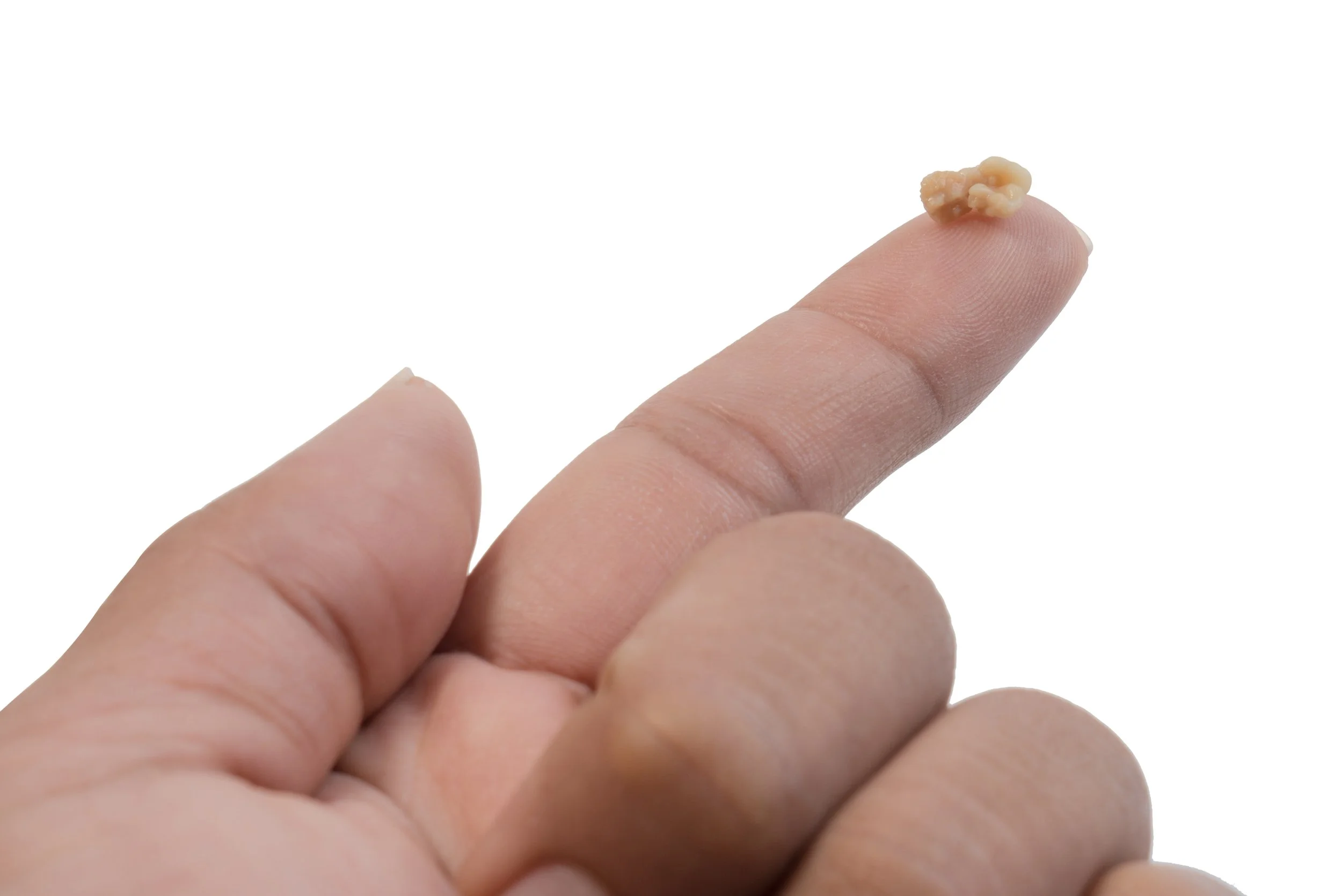Tonsil Stones
Tonsil stones, also known as tonsilloliths, are small, whitish or yellowish, calcified formations that can develop in the crevices or crypts of the tonsils.
Tonsils are located at the back of the throat and are part of the lymphatic system, which helps protect the body against infections.
Tonsil stones are typically composed of:
Dead cells from the lining of the mouth and throat.
Bacteria.
Food particles and debris.
These materials can accumulate and become trapped in the tonsil crevices, leading to the formation of small, hard, and sometimes foul-smelling concretions or stones. Tonsil stones are not usually harmful, but they can be a source of discomfort and bad breath (halitosis) for some individuals.
Symptoms of tonsil stones may include:
Bad breath.
Sore throat.
Difficulty swallowing.
Ear pain (referred pain).
A persistent cough.
Swelling or inflammation of the tonsils.
Treatment for tonsil stones varies depending on the severity of the symptoms. In mild cases, they may resolve on their own or with simple at-home measures like gargling with warm salt water or using a water flosser to dislodge them. A cotton swab or clean finger to carefully dislodge tonsil stones has worked but this should be done with caution to avoid gagging or injuring the delicate tissues of the throat.
Gargling vinegar is also used to remove tonsil stones. Gargling with vinegar, particularly apple cider vinegar, is sometimes suggested as a home remedy to help loosen and remove tonsil stones. The acidity of vinegar is thought to break down and dissolve the calcified material that makes up tonsil stones.
Here are some considerations:
Dilution: If you choose to use vinegar for gargling, it's essential to dilute it with water. Undiluted vinegar can be extremely harsh on the mouth and throat, potentially causing irritation or burning sensations. A common recommendation is to mix one to two tablespoons of vinegar in a glass of warm water.
Sensitivity: Not everyone's mouth and throat are equally tolerant of vinegar. Some individuals may find that vinegar is too harsh for their mucous membranes, leading to discomfort or even pain.
Gargling technique: Gargling vigorously with the vinegar solution may help dislodge tonsil stones, but you should be gentle to avoid damaging the delicate tissues in your throat.
Persistence: Tonsil stones can be stubborn, and you may need to gargle with vinegar repeatedly over a period of time to see results.
If you decide to try gargling with vinegar, it's a good idea to start with a low concentration and proceed cautiously, paying attention to how your body responds. If you experience pain, discomfort, or any adverse reactions, you should discontinue its use and consult a healthcare professional for further advice on managing tonsil stones. Additionally, if your tonsil stones are causing significant issues, a healthcare provider can provide more specialized guidance and may recommend other treatment options.
In more severe or recurrent cases, a healthcare professional may recommend:
Manual removal: A healthcare provider can use special instruments to manually dislodge and remove tonsil stones.
Tonsillectomy: In cases of recurrent or severe tonsil stones, surgical removal of the tonsils (tonsillectomy) may be recommended. This is a more permanent solution but is typically reserved for severe cases, as tonsils play a role in the immune system.








